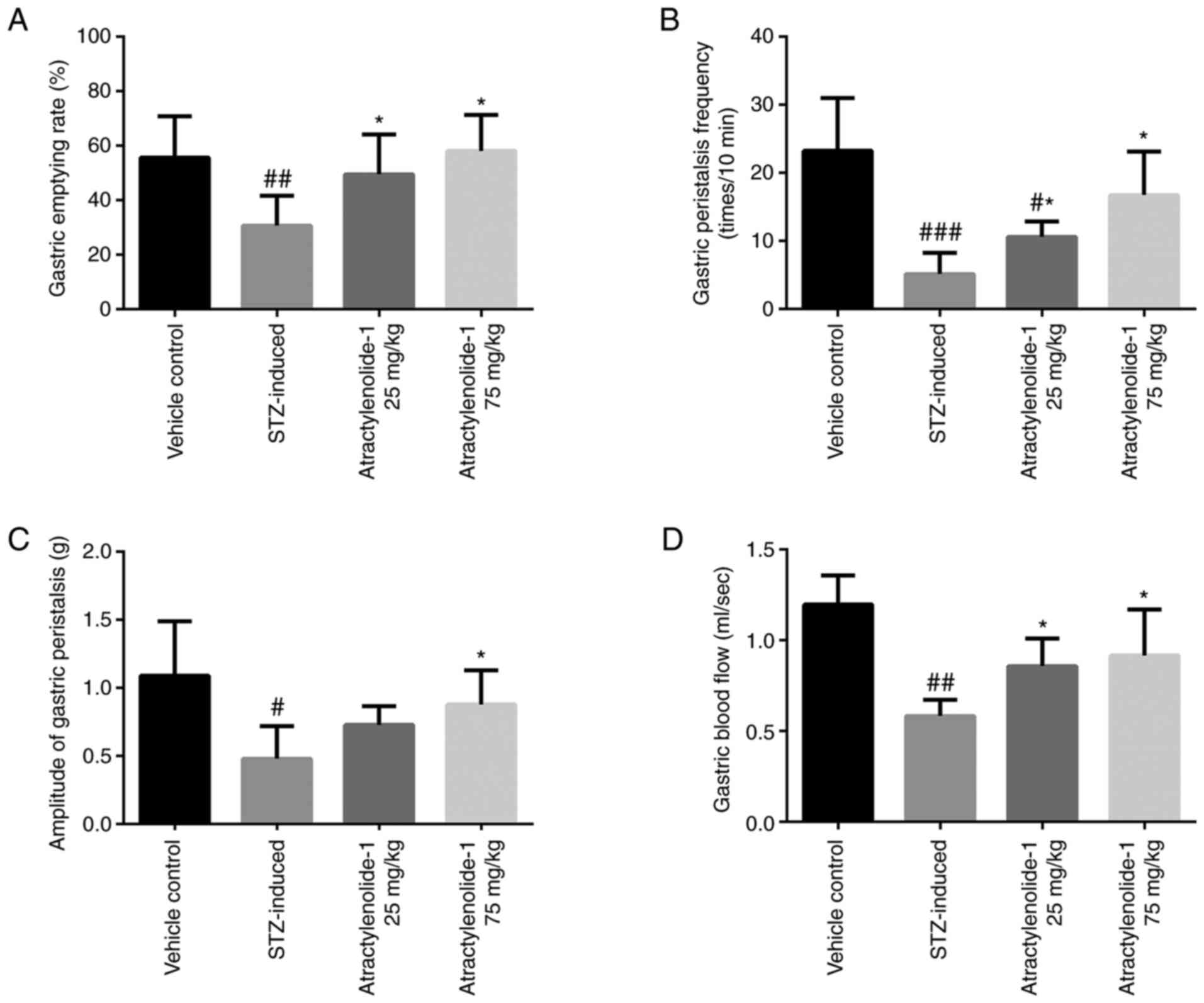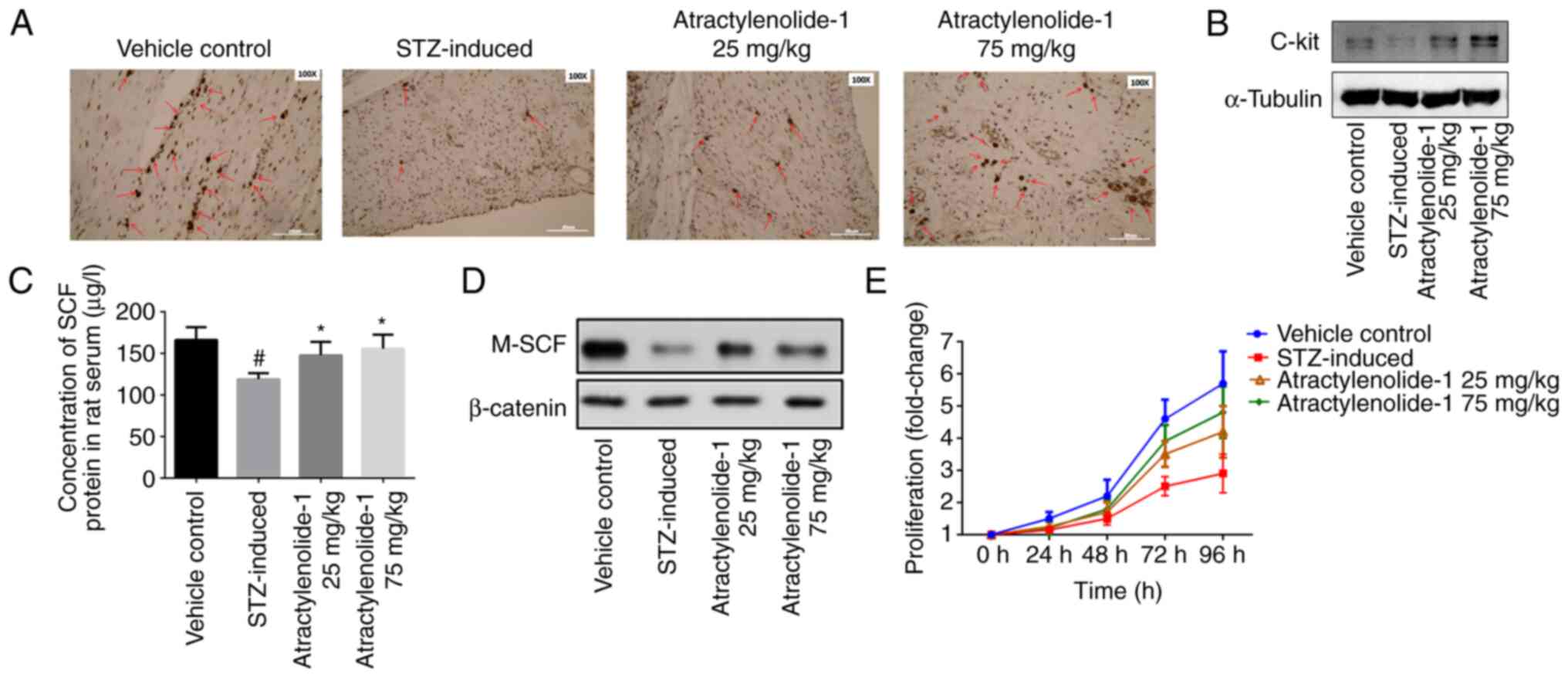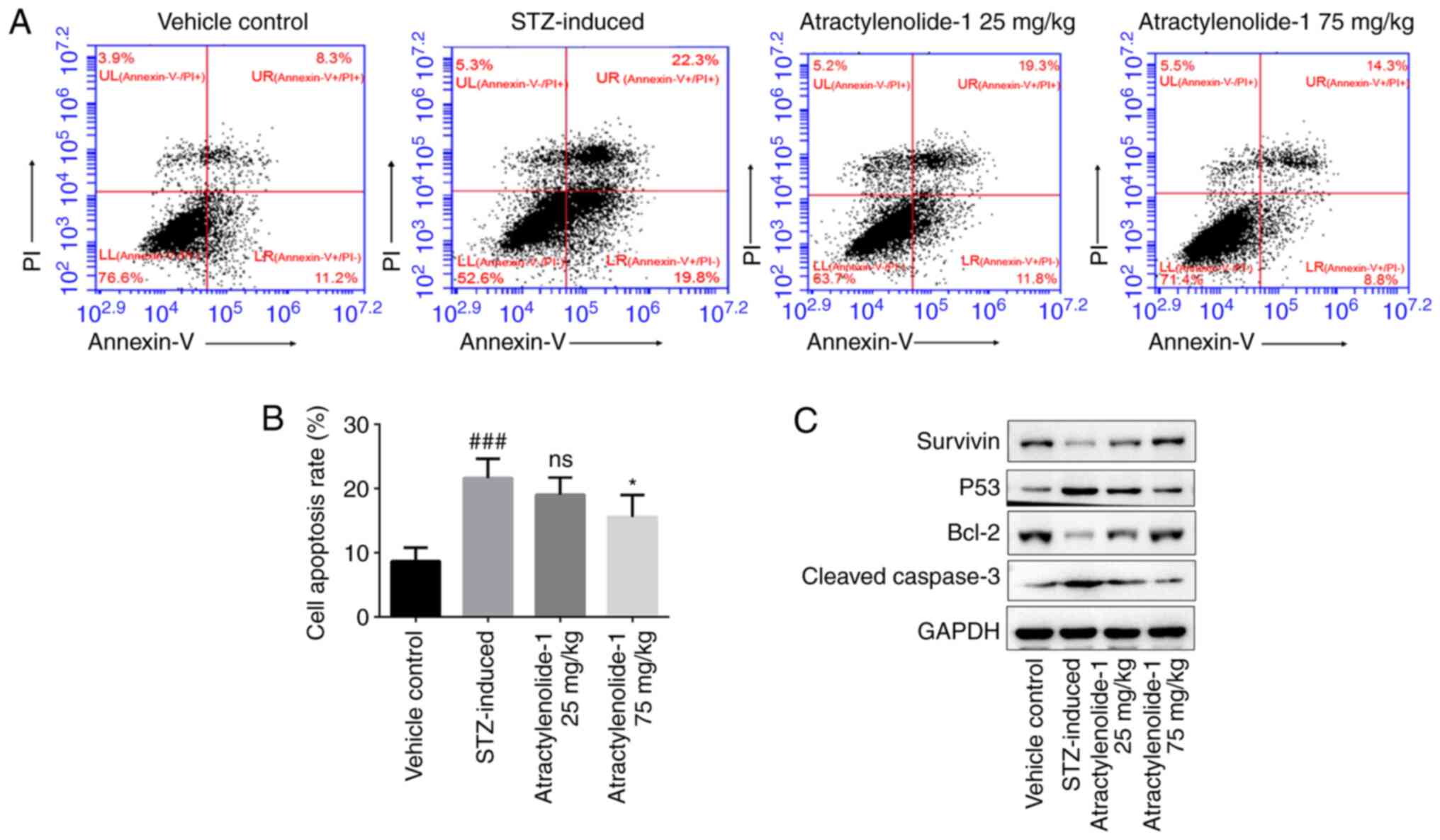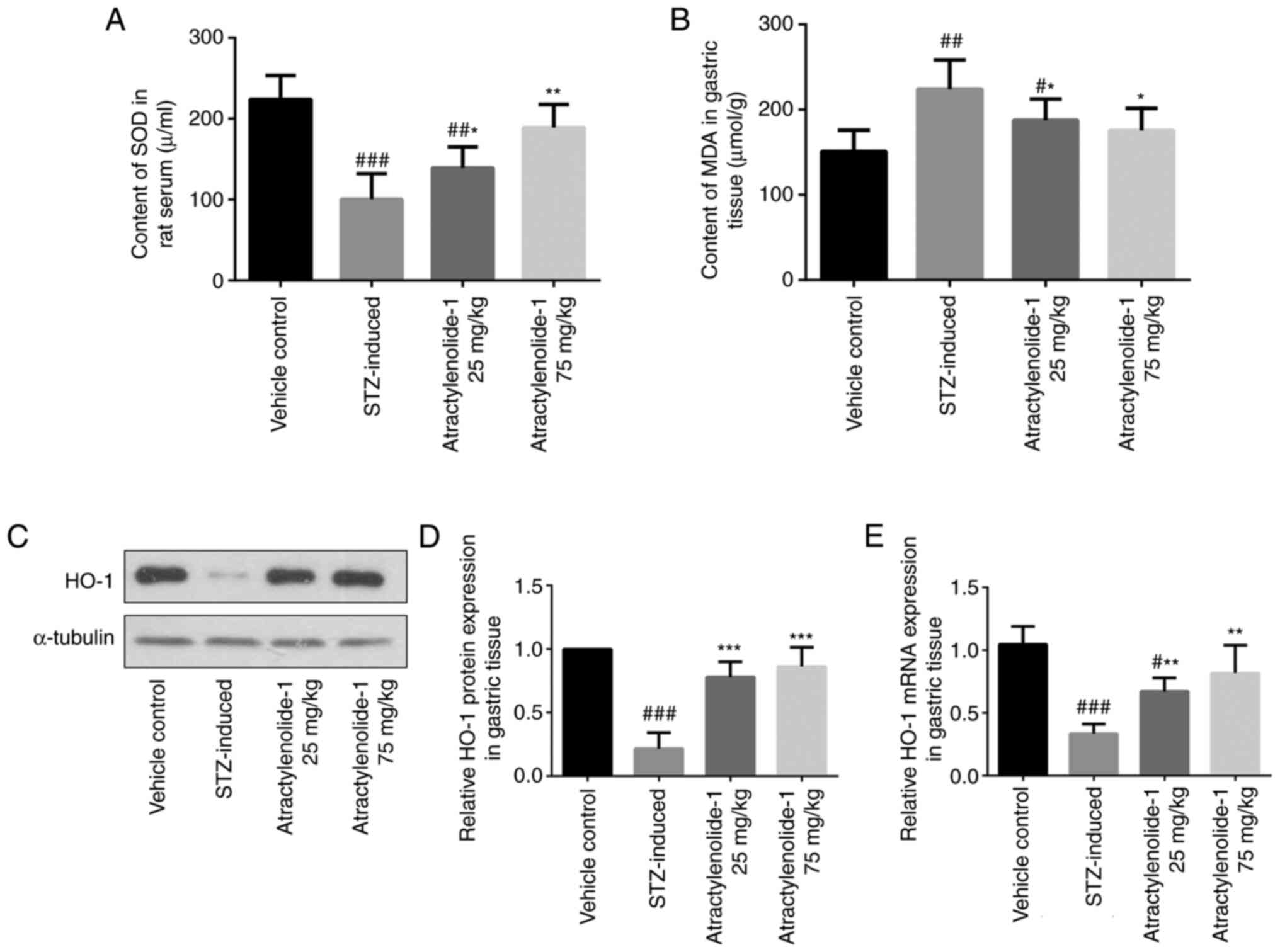|
1
|
Jung HK: The incidence, prevalence, and
survival of gastroparesis in olmsted county, Minnesota, 1996–2006
(gastroenterology 2009;136:1225-1233). J Neurogastroenterol Motil.
16:99–100. 2010. View Article : Google Scholar : PubMed/NCBI
|
|
2
|
Vinik AI and Ziegler D: Diabetic
cardiovascular autonomic neuropathy. Circulation. 115:387–397.
2007. View Article : Google Scholar : PubMed/NCBI
|
|
3
|
Choung RS, Locke GR III, Schleck CD,
Zinsmeister AR, Melton LJ III and Talley NJ: Risk of gastroparesis
in subjects with type 1 and 2 diabetes in the general population.
Am J Gastroenterol. 107:82–88. 2012. View Article : Google Scholar : PubMed/NCBI
|
|
4
|
Camilleri M: Advances in diabetic
gastroparesis. Rev Gastroenterol Disord. 2:47–56. 2002.PubMed/NCBI
|
|
5
|
Camilleri M, Parkman HP, Shafi MA, Abell
TL and Gerson L; American College of Gastroenterology, : Clinical
guideline: Management of gastroparesis. Am J Gastroenterol.
108:18–37; quiz 38. 2013. View Article : Google Scholar : PubMed/NCBI
|
|
6
|
Wang CP, Kao CH, Chen WK, Lo WY and Hsieh
CL: A single-blinded, randomized pilot study evaluating effects of
electroacupuncture in diabetic patients with symptoms suggestive of
gastroparesis. J Altern Complement Med. 14:833–839. 2008.
View Article : Google Scholar : PubMed/NCBI
|
|
7
|
Thazhath SS, Jones KL, Horowitz M and
Rayner CK: Diabetic gastroparesis: Recent insights into
pathophysiology and implications for management. Expert Rev
Gastroenterol Hepatol. 7:127–139. 2013. View Article : Google Scholar : PubMed/NCBI
|
|
8
|
Talley NJ, Young L, Bytzer P, Hammer J,
Leemon M, Jones M and Horowitz M: Impact of chronic
gastrointestinal symptoms in diabetes mellitus on health-related
quality of life. Am J Gastroenterol. 96:71–76. 2001. View Article : Google Scholar : PubMed/NCBI
|
|
9
|
Abell TL, Bernstein RK, Cutts T, Farrugia
G, Forster J, Hasler WL, McCallum RW, Olden KW, Parkman HP, Parrish
CR, et al: Treatment of gastroparesis: A multidisciplinary clinical
review. Neurogastroenterol Motil. 18:263–283. 2006. View Article : Google Scholar : PubMed/NCBI
|
|
10
|
Syed AA, Rattansingh A and Furtado SD:
Current perspectives on the management of gastroparesis. J Postgrad
Med. 51:54–60. 2005.PubMed/NCBI
|
|
11
|
Santhanam P, Marashdeh W and Solnes L:
Functional imaging of evaluation of diabetic gastroparesis. Curr
Diabetes Rev. 14:222–226. 2018. View Article : Google Scholar : PubMed/NCBI
|
|
12
|
Vinik AI, Erbas T and Casellini CM:
Diabetic cardiac autonomic neuropathy, inflammation and
cardiovascular disease. J Diabetes Investig. 4:4–18. 2013.
View Article : Google Scholar : PubMed/NCBI
|
|
13
|
Moraveji S, Bashashati M, Elhanafi S,
Sunny J, Sarosiek I, Davis B, Torabi A and McCallum RW: Depleted
interstitial cells of Cajal and fibrosis in the pylorus: Novel
features of gastroparesis. Neurogastroenterol Motil. 28:1048–1054.
2016. View Article : Google Scholar : PubMed/NCBI
|
|
14
|
Thuneberg L: Interstitial cells of Cajal:
Intestinal pacemaker cells? Adv Anat Embryol Cell Biol. 71:1–130.
1982. View Article : Google Scholar : PubMed/NCBI
|
|
15
|
Rich A, Miller SM, Gibbons SJ, Malysz J,
Szurszewski JH and Farrugia G: Local presentation of Steel factor
increases expression of c-kit immunoreactive interstitial cells of
Cajal in culture. Am J Physiol Gastrointest Liver Physiol.
284:G313–G320. 2003. View Article : Google Scholar : PubMed/NCBI
|
|
16
|
Faussone Pellegrini MS, Cortesini C and
Romagnoli P: Ultrastructure of the tunica muscularis of the cardial
portion of the human esophagus and stomach, with special reference
to the so-called Cajal's interstitial cells. Arch Ital Anat
Embriol. 82:157–177. 1977.(In Italian). PubMed/NCBI
|
|
17
|
Forster J, Damjanov I, Lin Z, Sarosiek I,
Wetzel P and McCallum RW: Absence of the interstitial cells of
Cajal in patients with gastroparesis and correlation with clinical
findings. J Gastrointest Surg. 9:102–108. 2005. View Article : Google Scholar : PubMed/NCBI
|
|
18
|
Iwasaki H, Kajimura M, Osawa S, Kanaoka S,
Furuta T, Ikuma M and Hishida A: A deficiency of gastric
interstitial cells of Cajal accompanied by decreased expression of
neuronal nitric oxide synthase and substance P in patients with
type 2 diabetes mellitus. J Gastroenterol. 41:1076–1087. 2006.
View Article : Google Scholar : PubMed/NCBI
|
|
19
|
Choi KM, Gibbons SJ, Nguyen TV, Stoltz GJ,
Lurken MS, Ordog T, Szurszewski JH and Farrugia G: Heme oxygenase-1
protects interstitial cells of Cajal from oxidative stress and
reverses diabetic gastroparesis. Gastroenterology. 135:2055–2064,
2064 e1-2. 2008. View Article : Google Scholar : PubMed/NCBI
|
|
20
|
Jin QH, Shen HX, Wang H, Shou QY and Liu
Q: Curcumin improves expression of SCF/c-kit through attenuating
oxidative stress and NF-κB activation in gastric tissues of
diabetic gastroparesis rats. Diabetol Metab Syndr. 5:122013.
View Article : Google Scholar : PubMed/NCBI
|
|
21
|
Feng J, Gao J, Zhou S, Liu Y, Zhong Y, Shu
Y, Meng MS, Yan J, Sun D, Fang Q, et al: Role of stem cell factor
in the regulation of ICC proliferation and detrusor contraction in
rats with an underactive bladder. Mol Med Rep. 16:1516–1522. 2017.
View Article : Google Scholar : PubMed/NCBI
|
|
22
|
Song HP, Li RL, Zhou C, Cai X and Huang
HY: Atractylodes macrocephala Koidz stimulates intestinal
epithelial cell migration through a polyamine dependent mechanism.
J Ethnopharmacol. 159:23–35. 2015. View Article : Google Scholar : PubMed/NCBI
|
|
23
|
Hossen MJ, Chou JY, Li SM, Fu XQ, Yin C,
Guo H, Amin A, Chou GX and Yu ZL: An ethanol extract of the rhizome
of Atractylodes chinensis exerts anti-gastritis activities and
inhibits Akt/NF-κB signaling. J Ethnopharmacol. 228:18–25. 2019.
View Article : Google Scholar : PubMed/NCBI
|
|
24
|
Hossen MJ, Amin A, Fu XQ, Chou JY, Wu JY,
Wang XQ, Chen YJ, Wu Y, Li J, Yin CL, et al: The anti-inflammatory
effects of an ethanolic extract of the rhizome of Atractylodes
lancea, involves Akt/NF-κB signaling pathway inhibition. J
Ethnopharmacol. 277:1141832021. View Article : Google Scholar : PubMed/NCBI
|
|
25
|
Zhu B, Zhang QL, Hua JW, Cheng WL and Qin
LP: The traditional uses, phytochemistry, and pharmacology of
Atractylodes macrocephala Koidz.: A review. J
Ethnopharmacol. 226:143–167. 2018. View Article : Google Scholar : PubMed/NCBI
|
|
26
|
Wang C, Duan H and He L: Inhibitory effect
of atractylenolide I on angiogenesis in chronic inflammation in
vivo and in vitro. Eur J Pharmacol. 612:143–152. 2009. View Article : Google Scholar : PubMed/NCBI
|
|
27
|
Guide for the Care and Use of Laboratory
Animals. National Academies Press; Washington, DC: 1996
|
|
28
|
Olfert ED, Cross BM and McWilliam AA:
Guide to the Care and Use of Experimental Animals. 1. 2nd edition.
Ottawa, ON, Canada: 1993
|
|
29
|
Livak KJ and Schmittgen TD: Analysis of
relative gene expression data using real-time quantitative PCR and
the 2(-Delta Delta C(T)) method. Methods. 25:402–408. 2001.
View Article : Google Scholar : PubMed/NCBI
|
|
30
|
Al-Awar A, Kupai K, Veszelka M, Szűcs G,
Attieh Z, Murlasits Z, Török S, Pósa A and Varga C: Experimental
diabetes mellitus in different animal models. J Diabetes Res.
2016:90514262016. View Article : Google Scholar : PubMed/NCBI
|
|
31
|
Da Silva LM, da Silva RCMVAF,
Maria-Ferreira D, Beltrame OC, da Silva-Santos JE and Werner MFP:
Vitamin C improves gastroparesis in diabetic rats: Effects on
gastric contractile responses and oxidative stress. Dig Dis Sci.
62:2338–2347. 2017. View Article : Google Scholar : PubMed/NCBI
|
|
32
|
Li J, Tang HL, Chen Y, Fan Q, Shao YT, Jia
M, Wang JC and Yang CM: Malondialdehyde and SOD-induced changes of
gastric tissues in acute gastric mucosal injury under positive
acceleration. Genet Mol Res. 14:4361–4368. 2015. View Article : Google Scholar : PubMed/NCBI
|
|
33
|
Bharucha AE, Batey-Schaefer B, Cleary PA,
Murray JA, Cowie C, Lorenzi G, Driscoll M, Harth J, Larkin M,
Christofi M, et al: Diabetes control and complications
trial-epidemiology of diabetes interventions and complications
research Group: delayed gastric emptying is associated with early
and long-term hyperglycemia in type 1 diabetes mellitus.
Gastroenterology. 149:330–339. 2015. View Article : Google Scholar : PubMed/NCBI
|
|
34
|
Yamamoto T, Watabe K, Nakahara M, Ogiyama
H, Kiyohara T, Tsutsui S, Tamura S, Shinomura Y and Hayashi N:
Disturbed gastrointestinal motility and decreased interstitial
cells of Cajal in diabetic db/db mice. J Gastroenterol Hepatol.
23:660–667. 2008. View Article : Google Scholar : PubMed/NCBI
|
|
35
|
Chen W, Jiang C, Jin X, Shen W, Song B and
Li L: Roles of stem cell factor on loss of interstitial cells of
Cajal in bladder of diabetic rats. Urology. 78:1443.e1–1443.e6.
2011. View Article : Google Scholar : PubMed/NCBI
|
|
36
|
Yu Y, Cai Q and Jia TZ: Study on variation
of gastroprotective effect of Atractylodes lancea Rhizome
before and after processing. Zhong Yao Cai. 39:760–763. 2016.(In
Chinese). PubMed/NCBI
|
|
37
|
Giacco F and Brownlee M: Oxidative stress
and diabetic complications. Circ Res. 107:1058–1070. 2010.
View Article : Google Scholar : PubMed/NCBI
|
|
38
|
Xu L, Li Z and Guo F: Curcumin improves
expression of ghrelin through attenuating oxidative stress in
gastric tissues of streptozotocin-induced diabetic gastroparesis
rats. Eur J Pharmacol. 718:219–225. 2013. View Article : Google Scholar : PubMed/NCBI
|


















